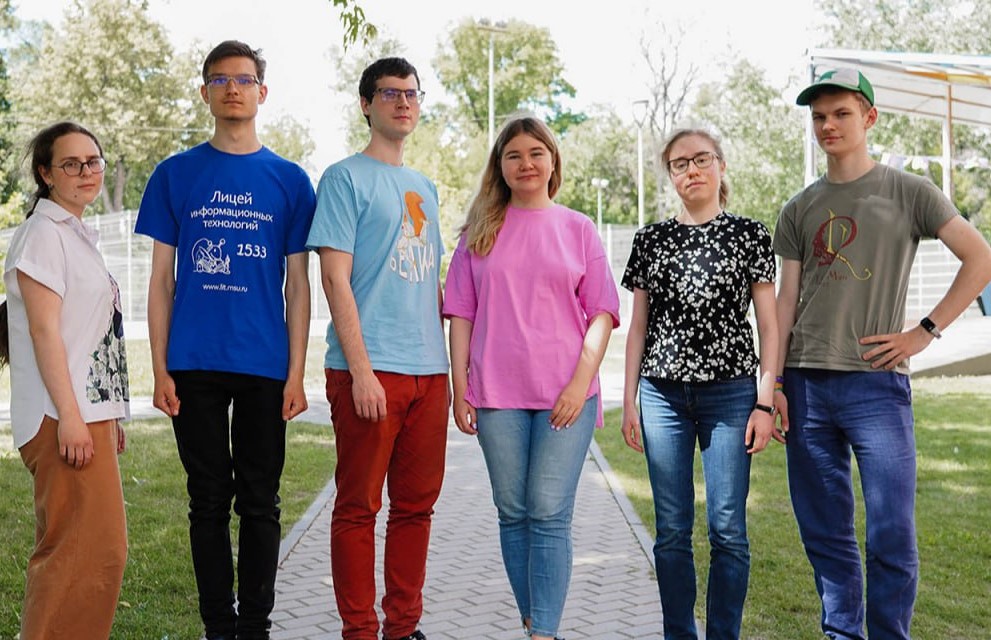‘The Fundamental and Computational Linguistics Programme Is an Ideal Balance of My Interests’

Artem Boyko, from St Petersburg, won a gold medal at the 20th International Linguistics Olympiad in Bulgaria and has now enrolled at HSE University. He was admitted without entrance examinations to the Bachelor’s programme Fundamental and Computational Linguistics. Artem spoke with the HSE News Service about his participation in the olympiads, his passion for linguistics, and joining the university.
—When did you first get involved in olympiads?
— Quite a long time ago, back in the fifth grade, when I entered Presidential Physics and Mathematics Lyceum No.239 and began to study there in a mathematical hobby group. At first, I took part in math Olympiads. I became interested in linguistics relatively recently, and did not immediately know that linguistic olympiads existed at all.
More than once I managed to take good places in national olympiads, including HSE’s Vysshaya Proba. In the 11th grade, I received two diplomas in the All-Russia Olympiad at once—for mathematics and Russian language. In the 10th and 11th grades, I won the first degree in the Moscow Traditional Linguistics Olympiad, after which I participated in the International Olympiad. Last year I won a silver medal there, and this year I got a gold one.
— What are your impressions of the International Olympiad?
— It was fun there. We talked with teams from different countries, told each other about our hobbies, discussed linguistics. I try to keep in touch with them online.
This year, before the trip, I learned some Bulgarian and actively used it—I talked to participants and volunteers from Bulgaria and used it in cafes and shops. The tasks were a bit undiversified, all in the same style, but still interesting. The Russian team’s results are excellent because we are cool.

— How did you become interested in linguistics?
— I have liked learning languages for a long time, but I was not super active in them. But when I stumbled upon Esperanto—an artificially constructed language in which everything tends to be easy to learn—I saw the language not as a chaos of exceptions requiring rote learning, but as a structure. And I, a digit-head, really liked it.
It turned out that linguistics is not so far from mathematics. I got interested in other constructed but more realistic languages, and learned a lot about how real languages are structured with all their mess. And then I heard about an olympiad that shows very beautifully how linguists study language structures. I met people who are passionate about this, including HSE University students and teachers.
— Is that why you decided to come to HSE University?
— Yes, I wanted to stay in this community.
When choosing the Fundamental and Computational Linguistics programme, I trusted the feelings of my HSE Universities acquaintances and what they were saying. I got the impression that this programme is a perfect balance of my interests. On the one hand, I need a lot of linguistics in my life, and on the other hand, I would like not to lose touch with mathematics and computer science. I really hope that my expectations come true.
— Tell us about the procedure for submitting documents to HSE University. What channel did you use?
— I submitted the documents on HSE University’s website through my personal account—it is quite convenient. I went to the Admissions Committee twice—first in St Petersburg, then in Moscow, when I submitted my high school diploma. Both times, everything went perfectly well and everything was clear. It was pleasant to communicate with the Admissions Committee representatives. In general, I am satisfied.
— Have you already decided where you will live in Moscow?
— Yes, in a HSE University dormitory.
— HSE University has a reputation as a difficult school where you need to spend a lot of time studying. Does that scare you?
— I love to study. If studying takes a lot of time, it is definitely not a problem for me. Although I hope that I will have at least a little free time.
I know that there are linguistic expeditions within the Fundamental and Computational Linguistics programme, and I would like to take part in them. I also plan to participate in student olympiads and take on tasks in some school olympiads.
— How do you picture your future work, opportunities for professional development, and earnings?
— Linguistics is very cool because it can be combined with so many sciences. It can be both humanitarian and technical, both applied and theoretical. Earnings and opportunities in general depend on many things, like in any other field, but, for example, in combination with computer science, you can become a rather narrow specialist and do a very interesting job.
So, in the future, I want to work in IT, of course, with the use of linguistics. I can’t say anything more precise yet—there are a lot of interesting things in the world. I hope I find something to my liking.

